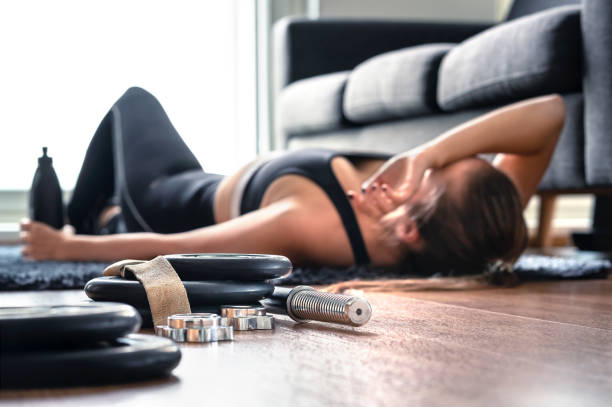Many people experience fatigue after exercise. I used to feel fatigued after every workout for the first few months of going to Chuze Fitness. But it’s something you can overcome. How? Read on to find out.
Keep a Journal
If you want to know how to prevent fatigue after your workout, the first thing you need to do is to keep a journal. Keep a record of details like the type of exercise, duration and frequency. You should also take note of how intense each session is, your heart rate, oxygen level, and so on. Keeping a journal ensures you’re organized and should you experience fatigue you can refer to your notes to find out what changes need to be made.
Monitor Your Post-Exercise Symptoms
You should take note of any symptoms you may experience post-workout. They may worsen within a few hours to two days after exercise. Moreover, take note of whether they interfere with your day to day activities, how soon you experienced them, and for how long.
Consider Gradual Progression
You may want to prepare for your half marathon race but that doesn’t mean you immediately do a 10K run on your first day of training. You need to pace yourself and follow exercise protocols so you avoid extreme fatigue and even injury.
If you experience more than the usual fatigue after exercise this should be your sign to take a step back, rest a few days and see if your symptoms improve.
Take Power Naps
Some people dislike taking power naps because they feel it’s a waste of time. But there are days when you do need it so you can be at your best. Even a shut-eye for 15 minutes will do you a lot of good and you’ll wake up feeling refreshed and energized. That said, avoid taking naps of 30 minutes or longer as often times you’ll wake up tired and groggy.
Stay Hydrated and Eat Well
Staying hydrated is a must during and after exercising. Have electrolyte replenisher drinks handy so you can replenish any lost electrolytes during your workout. You should also have some food and energy bars, and be sure to eat a light meal or snack 2 hours before your workout so you’ll have calories to fuel your body.
On a related note, a post-workout meal may be necessary especially if you had an intense workout session. The ideal post-workout meal contains carbs and protein, plus a little bit of fat. Eat it within 45 minutes from when you ended your workout.
Monitor Your Heart Rate
A heart rate monitor is a device that helps you avoid fatigue after your workouts. It’s especially useful for those with chronic fatigue so you can keep track of your heart rate / pulse throughout the day. A higher pulse means you’re working hard, and if the number stays at this level for long periods, you may end up with fatigue.
Balance Your Daily Activities
Our day to day activities take away a good chunk of our energy reserves. If we do too many things or exert too much effort, we end up using up all our energy and will at some point experience a crash. Balance your activities so you don’t end up overdoing things.
Most people feel good after a workout. That’s how it should be since endorphins will be released during physical activity. But if you feel the exact opposite, it can be very frustrating.
The reality is that many people do feel fatigued post exercise, and if you are on the same boat, the best you can do is to avoid triggering the symptoms. Plan your workouts and activities, and be sure to have proper hydration, nutrition and rest so you can reduce and even prevent fatigue.
Here are some ways you can prevent post-workout fatigue:
